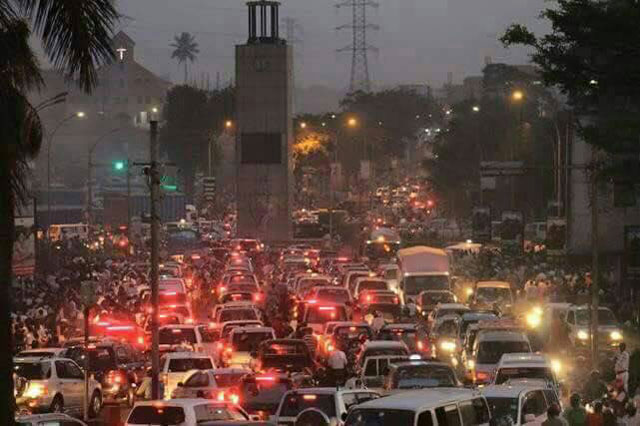
“Those little things sell Kampala more than the cleanliness and orderliness of other cities (because) having a sense of freedom matters a lot to individuals,” he concluded.
Fortunately for Kampala city, it appears more people are increasingly feeling nice about it. Mercer has for three years in a row ranked it as the best city to live in East Africa. That cannot be an accident or chance. So what, according to Mercer, makes Kampala city great?
Mercer analyses a city’s living conditions based on 39 factors grouped in 10 categories. These include; political and social environment (political stability, crime, law enforcement); economic environment (currency exchange regulations, banking services); socio-cultural environment (media availability and censorship, limitations on personal freedom) and medical and health considerations (medical supplies and services, infectious diseases, sewage, waste disposal, air pollution).
Other indicators include; schools and education (standards and availability of international schools); public services and transportation (electricity, water, public transportation, traffic congestion); recreation (restaurants, theatres, cinemas, sports and leisure); consumer goods (availability of food/daily consumption items, cars); housing (rental housing, household appliances, furniture, maintenance services) and natural environment (climate, record of natural disasters). The scores attributed to each factor are then weighted to reflect their importance to expatriates.
For the general user, it offers few details on how individual cities perform on each ranking. As a business, it promises to offer such details to its clients – mainly organisations involved in paying expatriate workers. Therefore, it is not clear why Kampala is the best city according to Mercer.
Don’t ignore rankings
Possibly resulting from the lack of detail, the Mercer survey has been welcomed and derided in equal measure by many people. But Belinda Namutebi, a branding expert told The Independent on April 09 that Ugandan planners need to take rankings and endorsements from firms like Mercer seriously. In a globalized world and for marketers of the country, she said, “the product is the experience of Uganda.”
“This is even more so for those selling Uganda as a tourist destination,” she said, “Before tourists come, they research about the destination they intend to visit.
“Ugandans are not the consumers of the Uganda experience and we are not in full control of what they (tourists) hear,” she said.
The Mercer global city rankings has been conducted annually for the last 20 years to mainly enable multinational companies and other organisations to determine fair pay when placing expatriates on international assignments.
The survey is influenced by one main determinant of any city’s future in a globalised world; the ability to attract people and investments.
“Decision makers increasingly acknowledge that globalisation is challenging cities to reform, innovate and compete to attract people and investments,” says Slagin Parakatil, Principal at Mercer and Global Product Owner for its Quality of Living research. Parakatil notes that younger generations; millennials in particular, often have high expectations in terms of lifestyle, leisure and entertainment opportunities.
So what makes Kampala a better city to live in than Nairobi, Dar, or Kigali?
Vincent Mugaba would know as the Uganda Tourism Board (UTB) publicist. He told The Independent that besides the vibrant entertainment scene and food, Kampala scores highly on security and safety.
Gaël Grilhot, a French independent journalist who has been filing stories for Le Monde Afrique and Radio France International for the last two years from Kampala, would agree.
“Even if I know that there are some places where you don’t have to walk alone, especially at night, it is the thing I like the most in Kampala,” he says, “I know there are some cities in East Africa, like Nairobi and Dar es Salaam, where this is not the case.”
For Emmanuella Batamula, 23, a Diplomacy and International studies Master’s student at Uganda Martyrs University Nkozi who has alternated living in Nairobi and Kampala all her life, thanks to the itinerant working life of her expatriate parents, Kampala’s vibrancy is the main attraction. She says Kampala beats Nairobi, another vibrant city, hands down.
“Although Nairobi is equally vibrant,” she says, “the Kenyan capital is more expensive.”
Amin Tamale Kiggundu, a lecturer of urban planning at the Department of Architecture and Physical Planning in Makerere University says Mercer’s rankings of the East African cities are spot on only in some aspects.
“The cost of living is relatively lower in Kampala especially when it comes to availability, accessibility and affordability of a variety of food,” he says.
Although the Kenyan capital remains one of the biggest economies in Africa (and a key destinations in terms of foreign direct investments, especially when it comes to real estate), Kiggundu says Nairobi planners have failed to keep pace with the infrastructure needs of the residents.
“Nairobi is bigger than Kampala and Kigali so infrastructure development poses a far bigger challenge for Nairobi,” he says.
 The Independent Uganda: You get the Truth we Pay the Price
The Independent Uganda: You get the Truth we Pay the Price






Freedom of speech isn’t a preserve of Kampala. Security wise it doesn’t measure to the level of Kigali yet in relation to Nairobi it is by far better. In terms of freedom of speech Nairobi is superior
Неликвиды заводов и предприятий чукотки
http://ckpiz.info/page/nelikvidi-zavodov-i-predpriyatij-chukotki/
.
Куплю неликвиды предприятий
http://ckpiz.info/page/kuplyu-nelikvidi-predpriyatij/
.
Hi All im noob here. Good article! Thx! Thx!